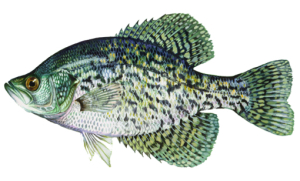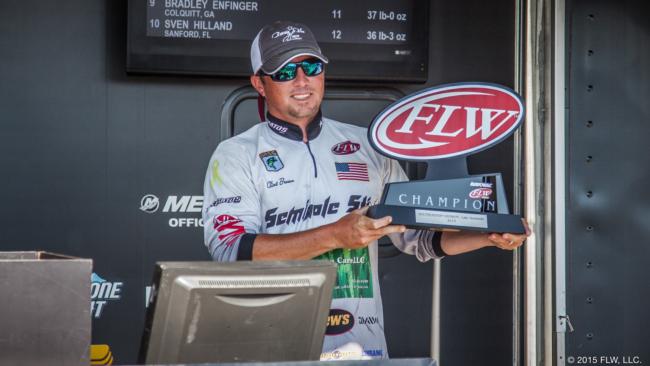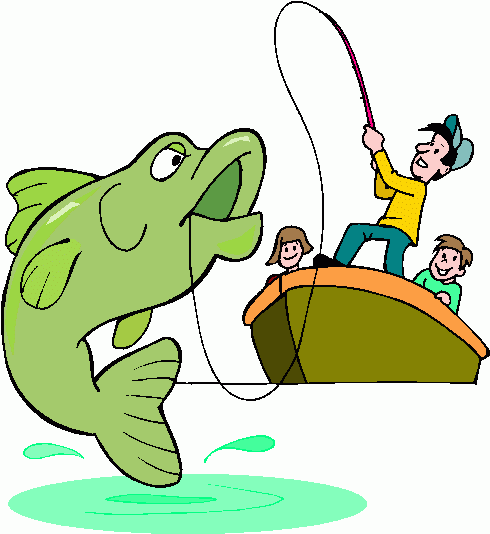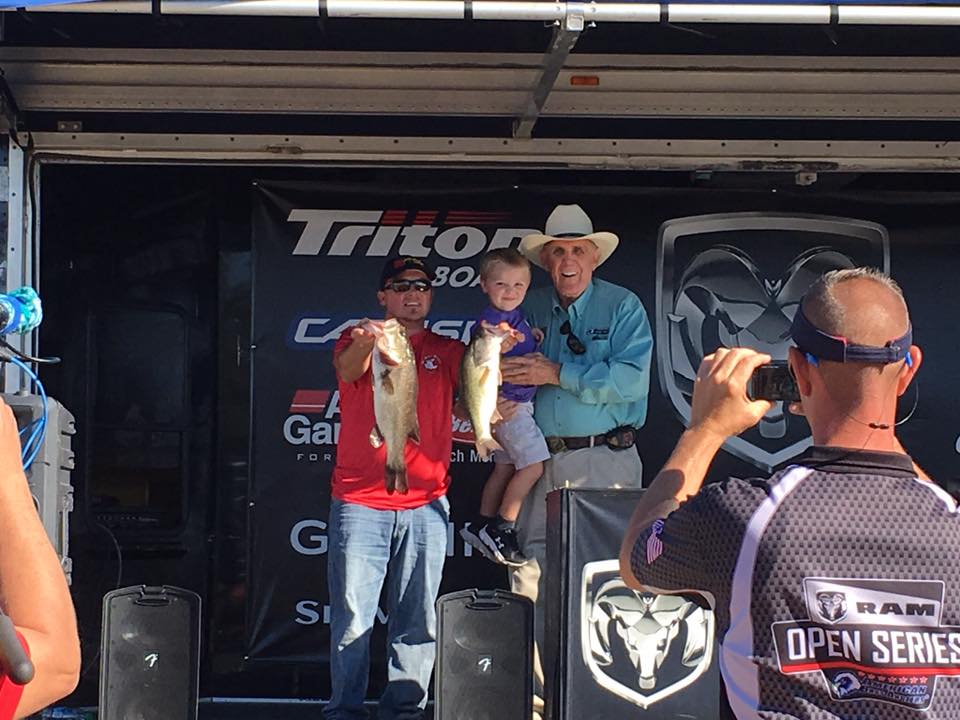

Scientific Name: Pomoxis nigromaculatus
Adult size: 5–19 inches
Distribution: Found in warm waters throughout the state
Get out on the water now because the time is right for cool weather crappie fishing, according to the Georgia Department of Natural Resources’ Wildlife Resources Division.
“If you need information on some fantastic ‘hot spots’ for crappie fishing, we have it” said Matt Thomas, chief of fisheries management. “And when you go, be sure to bring a friend or family member with you—and bring your camera to capture some of the action on the water!”
During cool winter weather, crappie congregate in deeper water, generally 15–30 feet deep, near the mouths of major tributaries and in the main lake. Large schools are easily located with sonar electronics.
As the water warms in late March, crappie will move to more shallow water toward the middle and back of major tributaries, preferring to congregate around woody cover such as stumps, logs, downed trees, fish attractors and creek ledges. Minnows and small jigs are favored bait, and light spinning tackle spooled with 6- or 8-pound test line is recommended.
Cool weather “hot spots”
- Northwest Georgia: Lake Allatoona hot-spots from north to south include the Etowah flats, Little River, Sweetwater, Kellogg, Illinois, Tanyard and Clark creeks. Channel drops, brush piles or man-made fish attractors in these areas are good bets (fish attractor location maps online at gofishgeorgia.com); the Coosa River, concentrating in the river immediately below the Lock and Dam Park and the tributary backwaters off the main river channel, especially in the Brushy Branch area of Big Cedar Creek.
- Northeast Georgia: Lake Lanier’s upper part of the reservoir, especially the Chattahoochee River arm. Crappie will be holding tight to downed trees in the Clarks Bridge area as well as Wahoo Creek and Little River. In Lake Hartwell, crappie are most abundant in the Eastanollee Creek area, especially upstream of Buoy EC3, and in the upper reaches of Lightwood Log Creek. Lake Nottely, near Blairsville, also supports a decent crappie fishery. Look for crappie in downed timber along the main shoreline upstream of the Deavertown Boat Ramp and in the upper reaches of Youngcane Creek.
- East Central Georgia: Clarks Hill Lake, especially at Soap, Fishing, Grays and Newford creeks, and the Little River arm; Charlie Elliott Wildlife Center anglers should visit Bennett, Shepherd and Margery Lake and fish deep water, flooded timber and fish attractors; Lake Oconee at Beaverdam, Sandy, Rocky, Richland and Sugar creeks and the Appalachee River arm; Lake Russell at Rocky River, Beaverdam, Coldwater and Allen creeks; Lakes Blalock and J.W. Smith in Clayton County both offer good bank fishing near boat ramps and additionally Lake Blalock offers good fishing at areas of standing timber and at J.W. Smith anglers are urged to concentrate on Panhandle Road Bridge, the overflow structure near the dam and the submerged pond and dam on the south side of the lake; Lake Varner and Randy Poynter Lake provide great crappie fishing opportunities.
- West Central Georgia: West Point Lake has fish attractors, deep water areas, creek mouths and bridges; Big Lazer Public Fishing Area; Lake Sinclair at Beaverdam Creek, around larger islands (Optimist, Budweiser and Goat), riprap along Highway 441 at Little River, Beaverdam and Rooty Creek. Bank or boat anglers at Sinclair also can try riprap at Twin Bridges and Potato Creek along Highway 212. Flat Creek PFA has standing timber and fish attractors that offer good crappie fishing in the winter. The Go Fish Education Center in Perry allows for the catch and release of trout from their casting pond until the end of February. Starting on March 2, visitors are allowed to catch and keep the trout. This opportunity is available to the public on Fridays and Saturdays (9 a.m.–5 p.m.) and Sundays (1–5 p.m.).
- Southwest Georgia: Lake Walter F. George at Pataula Creek, Rood Creek, Sandy Branch and Sandy Creeks; Lake Seminole at the main river channels around Ford Scott Island, the Chattahoochee River mouth (between river miles three and four), the mouth of Spring Creek and the old river channels and submersed structures; Lake Blackshear at Swift Creek, Collins Branch, Cedar Creek, the main channel above Highway 280 and the numerous sloughs located off the main river channel between Highway 27 and Highway 30.
- South Central Georgia: At Dodge County Public Fishing Area (PFA) and Hugh M Gillis PFA, the most effective methods are long-line trolling with curl tailed grubs or small crankbaits. At Paradise PFA drifting or slow trolling tube baits or curly tail grubs can be productive. Lakes Patrick, Paradise and Horseshoe 4 are best bets at Paradise PFA. Fisheries staff also recommends casting towards the bank as fish move to shallow water to spawn. Anglers should note that live minnows are now allowed on these PFAs. Backwaters of the Altamaha River can produce excellent catches of crappie when the level is right. Fish cover in the numerous oxbow lakes with minnows or tube baits for the best success. The crappie population is high right now, so give the river oxbows a try.
Georgia anglers support fisheries conservation! Did you know that your license purchase allows the Georgia WRD to continue to do important research, maintain and operate public fishing areas and more! Purchase a Georgia license at https://gooutdoorsgeorgia.com/.
For more information on fishing in Georgia, visit http://georgiawildlife.com/fishing/angler-resources. Anglers can also stay up-to-date on fishing information by checking out our weekly fishing report at https://georgiawildlife.wordpress.com/.




Be the first to comment